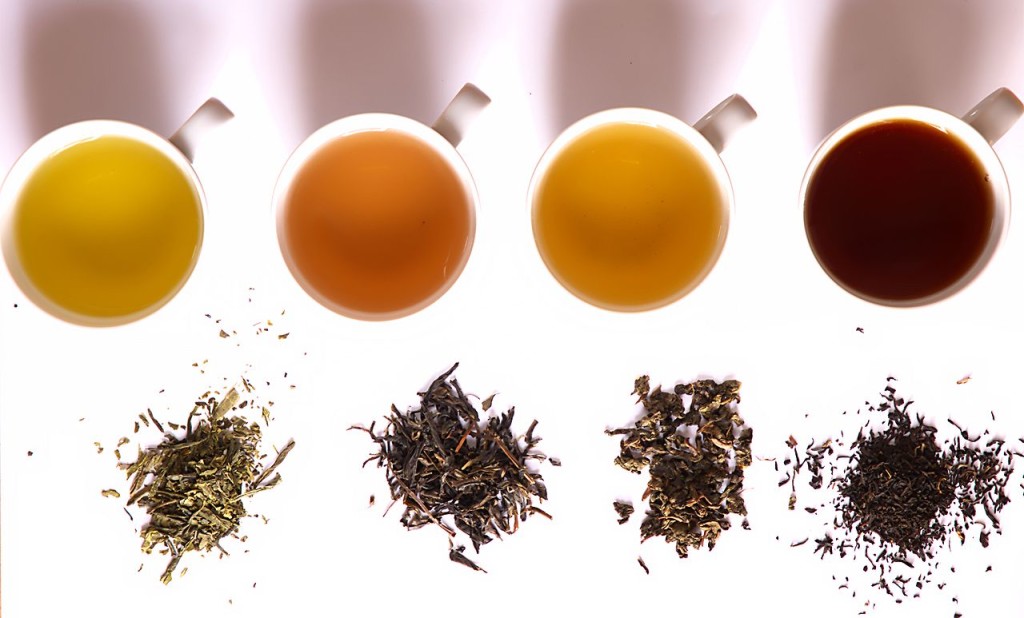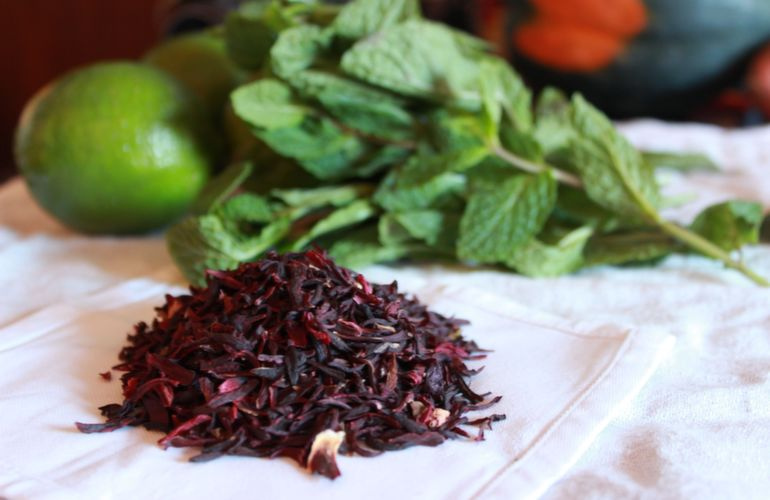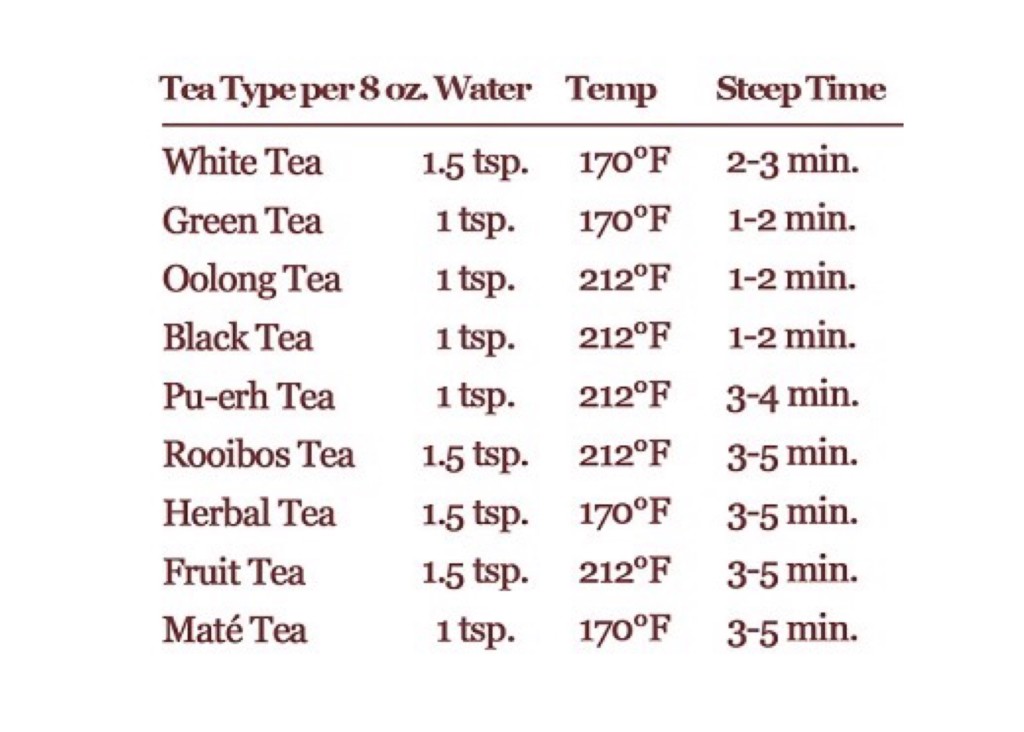I don’t really like coffee. There I said it. I just prefer tea. There is such a variety out there, and with so many benefits. Here’s to all the tea lovers out there, and hopefully some converts as well.
The Basics

Photo courtesy of Wikipedia
First things first, let’s talk about different kinds of tea. The main types are: white, green, oolong, black, and herbal. The term “true tea” refers to any tea that comes from the plant Camellia sinensis. True tea can be divided into four types depending on levels of oxidation: white, green, oolong, and black.
According to The Octavia Tea Company, “oxidation (also called fermentation) is a natural process that changes the color and flavor of the leaf. To initiate oxidation, fresh tea leaves are rolled in order to crack the surface of the leaf so that oxygen will react with the plant’s enzymes. Black tea is fully oxidized, oolong tea is partially oxidized and green and white teas are unoxidized. Generally speaking, the less a tea is oxidized, the lighter it will be in both taste and aroma.”
Tea that comes from any other type of plant is referred to as “herbal tea.” However, it’s not really “tea,” but rather an “infusion.” This includes various fruit teas and rooibos as well. Herbal teas are naturally caffeine free, making them a great alternative to other teas.
Worried about caffeine? Here is a chart from Choice Teas with a breakdown:
| Beverage | Caffeine Per 8 oz Cup |
| White Tea | 30-55 mg |
| Green Tea | 35-70 mg |
| Oolong Tea | 50-75 mg |
| Black Tea | 60-90 mg |
| Coffee |
150-200 mg
|
Health Benefits
White tea:
- considered the healthiest tea as it contains the highest levels of antioxidants and theanine, a rare amino acid
- antioxidants are believed to maintain health, promote healthy skin, prevent disease, and contain anti-aging properties
- theanine promotes mental and physical relaxation, improves mood, reduces anxiety, boosts immune system
Green tea:
- rich in antioxidants, boosts immune system, may promote weight loss
Oolong tea:
- may lower cholesterol, boost metabolism, and aid weight-loss
Black tea: (includes pu-erh tea)
- rich in antioxidants believed to regulate blood pressure and lower cholesterol
Herbal tea:
- benefits will vary with kind of herbal tea
- may relieve tension and stress, promote restful sleep, enhance memory retention
- note: chamomile is famous for its therapeutic effects
Rooibos tea:
- rich in antioxidants, vitamins, minerals; anti-inflammatory and anti-allergen agent
- strengthens immune system, promote restful sleep, and aid relaxation
Fruit tea:
- great source of vitamins, minerals, and antioxidants
Why loose tea?

Photo by Clark Halpern
Loose tea has a stronger and fresher flavor, because often it is simply a higher quality tea. Loose leaf tea uses whole (or very large pieces of leaves), and thus, all the essential oils of the tea leaf are expressed in the water. Bagged tea largely contains crushed, lower quality leaves. Unlike tea bags, loose tea can be re-steeped several times without losing their favor. Another benefit: you know exactly what’s in it.

Photo courtesy of Green Teahouse
Looking to stock up? Check these wonderful online stores: David’s Tea, Green Teahouse, Teavana, Mighty Leaf
Now you just have to find a cute mug to drink from! Happy drinking!

Photo by Jessica Payne


